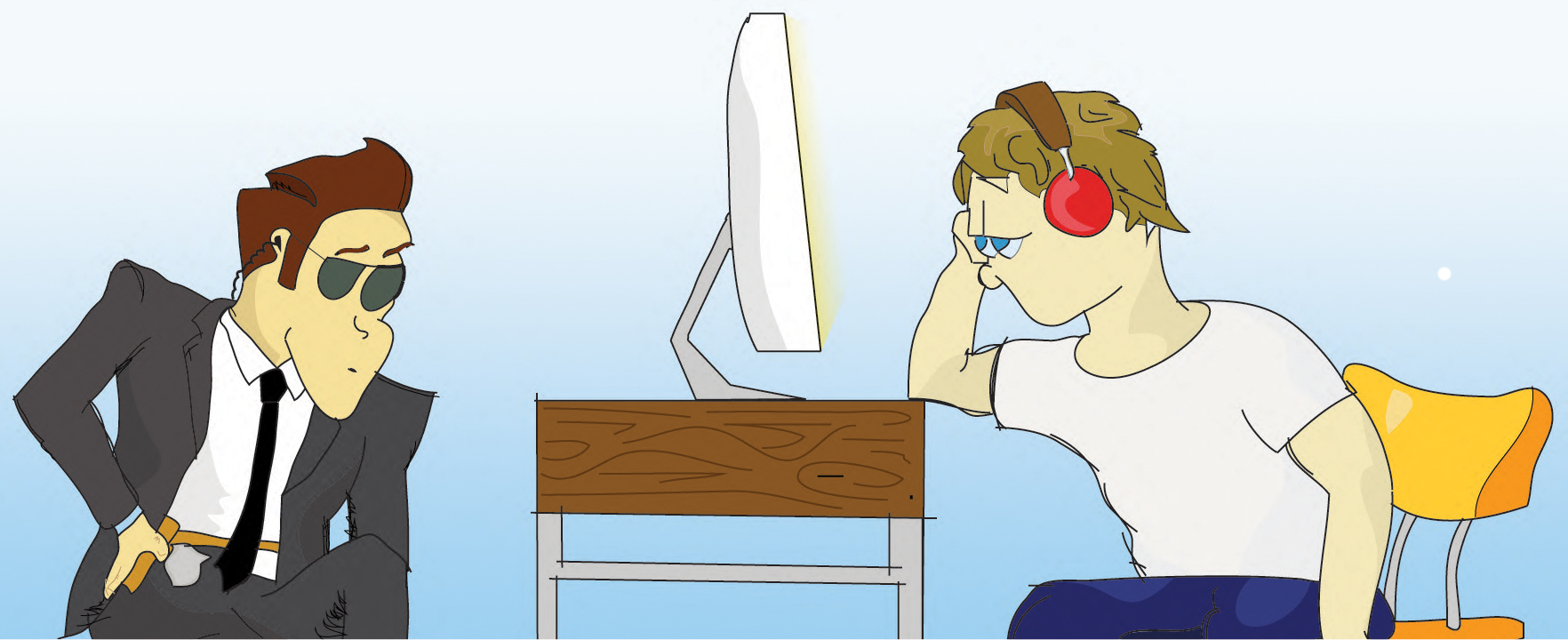Downloading trouble

By Kassy Cho
Nov. 9, 2011 12:47 a.m.
Justin Sanders used BitTorrent, a downloading software, to watch a movie on his computer at his home.
But when he tried to log on to the UCLA Internet service a few days later, he found that his computer had been quarantined by UCLA. He could not access the Internet or check his emails.
When he did access his email, the third-year political science student said he found notices from UCLA administration informing him he had violated copyright laws and shared files illegally. He was required to attend a workshop on illegal file sharing, where he met with the assistant dean of students to address the situation.
Because of the workshop, Sanders no longer installs file sharing software on his computer.
Last year, a total of about 531 students were cited for illegal file sharing, according to the UCLA Office of the Dean of Students.
Of that number, about 35 percent of the cases were accidental, said Kenn Heller, associate director of the Center for Student Programing and assistant dean of students.
Unless file sharing is turned off, using peer-to-peer software such as BitTorrent, uTorrent, and FrostWire on campus can result in violation of copyright law, said Jonathan Curtiss, director of IT development for student and campus life. The creative works of individuals are protected by United States copyright law, he added.
“Anything that is in the creative market place and can be sold for value is (the creator’s) property,” Curtiss said.
And if the software has not been turned off and the content has not been removed, then illegal file sharing may happen without a student knowing, Heller said.
“Unless you are absolutely secure in your knowledge of the software, you should remove it,” Heller said.
Curtiss said UCLA’s location in Los Angeles, the heart of the entertainment industry, has put the school under considerable scrutiny.
“We are the prime demographic for purchasing the products produced by the entertainment industry,” Curtiss said.
Ninety-eight percent of copyright infringement at UCLA is for entertainment such as movies, TV shows and music that are made in Hollywood, Curtiss said.
Because the university itself is a huge producer of intellectual property in the forms of assignments, lectures, artworks and projects, UCLA has to pay special attention to the issue of illegal file sharing, Heller said.
Curtiss said although peer-to-peer software, commonly known as P2P, is not illegal, sharing files through the software can be. Unlike other universities, UCLA does not block P2P file-sharing, nor does it fine students as punishment, Curtiss said.
There are some legitimate uses for file sharing, such as in graduate research, he added.
“When you are not sure, the rule of thumb is if you didn’t produce it yourself and can buy it online or in store, you may be violating copyright law (by using it),” Curtiss said.
UCLA does not take any action to monitor the activities of a student when he or she is connected to the campus Internet to ensure student privacy, Heller said.
But under the Digital Millennium Copyright Act of 1998, anyone who is the legal owner of the content has the ability to file a complaint against an Internet provider who gives access to someone who may be sharing the content, Heller said.
When the legal owner of the shared content, such as Paramount Pictures and the Recording Industry Association of America, notifies the university of an infringement, UCLA has to take action, Heller said.
After receiving and reviewing the complaint, UCLA sends the offender an email explaining the specifics of the complaint and the disciplinary action that may follow from a repeated offense, including suspension.
Students have been disciplined with suspensions of up to two years in the past, but there has yet to be an expulsion, Heller said.
If the student fails to respond to this warning email, another notice is sent and an academic hold is placed on the student’s university account.
After responding to the email, the hold on a student’s account is lifted and they are required to attend a workshop that explains the issues of illegal file sharing.
Students who infringe a second time are suspended from the university for a quarter.
In some cases, professional schools can take actions against the student independent of the university, Curtiss said. Law students may have their actions reported to the State Bar of California, which may prevent them from taking the law exam, he added.
For international students, disciplinary actions from file sharing on their academic record may be reported to the U.S. Immigrations and Customs Enforcement and can lead to deportation from the country, Curtiss said.
Gloria Rivera, a second-year psychology student, said she is aware of illegal file sharing and is careful about which websites she visits on campus.
She said she does not use P2P software to download movies and other forms of entertainment.
Curtiss said students should go to legitimate sources for entertainment.
There are many legal services for inexpensive entertainment, such as Netflix, Hulu, Pandora and Spotify, he said.

